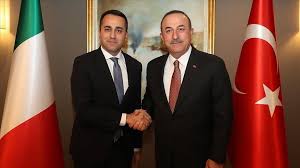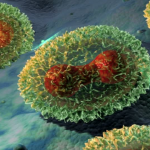Italy is promoting its strategic importance for the Belt and Road Initiative and the European energy market boosting its diplomatic and commercial relations with China and Turkey. Despite the fact that the cooperation with Beijing and Ankara might result in investments for the Italian national infrastructure projects and can promote the Made in Italy into Chinese and Turkish markets, this approach can undermine Italy’s partnership and diplomatic relations with the United States, the European Union and a historical friend as Armenia.
Truthfully, the White House has recently warned the Italian government due to its relations with China. If Rome strengthens the cooperation with Beijing in different fields, particularly in TLC and commercial trade, Washington might not share any more its Intelligence with the Italian side.
The roadmap of this risky diplomatic strategy started years ago but became more hazardous with this current Italian coalition government (Democratic Party and Five Stars Movement) when in 2019 Italy and China signed a memorandum of understanding (MoU) to improve Rome-Beijing partnership on the Belt and Road Initiative and their trade turnover. Regarding Turkey, even though Ankara’s foreign policy and economic strategy in the Mediterranean Sea and the MENA region have threatened Italian interests, Italy remains Turkey’s fifth trading partner and second among European countries. In 2019 trade has reached 17.9 billion dollars, with 8.6 billion Italian exports to Turkey and 9.3 billion Turkish exports to Italy.
Since the end of the lockdown, the Italian foreign strategy has experienced a surge of contacts and cooperation with Ankara and Beijing showing the Italian will to balance its international relations moving from the West to the East. In fact, on August 25th, 2020, the Chinese foreign minister Wang Yi paid an official visit to Italy and met the Italian foreign affairs minister Luigi Di Maio. As Wang Yi underlined, Italy was the first country he visited after the lockdown due to the significant role which the ‘Bel Paese’ plays for the 21st Maritime Silk Road. The Chinese minister stressed that Rome and Beijing enhanced their relations during Covid-19 emergency thanks to the mutual help.
Di Maio said that China is a necessary partner for Italy. According to the Italian foreign affairs minister, before the end of this year, the two sides will meet again to sign a three-year cooperation plan.
A few days before Wang Yi paid his official visit to Rome, the Italian Parliamentary Security Committee (COPASIR) expressed its concern for the Chinese involvement in Italian national assets. In fact, in the opinion of the Italian secret services, Chinese companies have shown interests in the national maritime and industrial infrastructures, especially ports and factories located in the area of Taranto in the south of the country (Apulia region).
Recently, on October 2nd, 2020, Di Maio met the Turkish foreign affairs minister Mevlut Cavusoglu to discuss the current situation in Libya that needs a security plan and stability. Di Maio accentuated that Italy and Turkey want to cooperate to create a stable Libya, establish a disarmed zone, and restore oil production and export.
The energy market has always played a decisive role in foreign policy and Italian-Turkish relations. Indeed, Italy and Turkey are connected through the gas pipeline which will export the Azerbaijani natural gas extracted from the Caspian field of Shah Deniz towards Europe crossing Georgia, Turkey (thanks to the Trans Anatolian Pipeline – TANAP), and Greece and Albania to arrive in Italy in Apulia region (thanks to the Trans Adriatic Pipeline – TAP)
The Italian minister also discussed with his Turkish homologue the current escalation in Nagorno-Karabakh and emphasised that Azerbaijan until now has been patient because it has relied on the international organisations. As believed by Di Maio, foreign and regional institutions have made a mistake because they have considered both Baku and Erevan at the same level.
Even though Di Maio highlighted Turkish solidarity during Covid-19 crisis, it is not possible to forget that Turkish foreign policy has influenced the Libyan conflict becoming a threat for Italian interests, especially the ENI presence in the Libyan energy market. Furthermore, considering how difficult are now the Turkish-American relations since Ankara started its aggressive foreign policy in the Middle East and bought the first batch of the Russian missile system S-400, a closer collaboration between Italy and Turkey could seriously endanger Rome’s diplomacy with the White House and NATO.
Di Maio’s statement over the Nagorno-Karabakh conflict has catalysed enormous disappointment among the Armenian community in Italy. Also, many journalists, who have accused Erdogan of establishing a strong regime against freedom of speech, civil rights and ethnic minorities, condemned Di Maio’s meeting with Cavusoglu. We cannot forget that Turkey has not yet recognised the Armenian Genocide occurred in 1915-1916. Furthermore, in the last few years, Ankara has developed an aggressive foreign policy in the Middle East, the Caucasus, Central Africa, and North Africa with the aim at re-creating the Sultanate and transforming Turkey into the leader of the Muslim umma (community).
Finally, Italy has strong cultural and historical relations with Armenia. The Armenian Diaspora is part of Italian society and plays an influential role inside the Christian community. Even though only around 1300 Armenians live in Italy, the Armenian community is substantial and more influential than the Azerbaijani Diaspora (more than 550 people). For this reason, Di Maio’s views on the Nagorno-Karabakh conflict and Azerbaijan might result in a loss of domestic and international political support because of Ankara’s regional policy in the Caucasus and Baku’s military operations in Nagorno-Karabakh.





